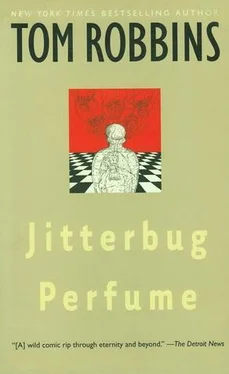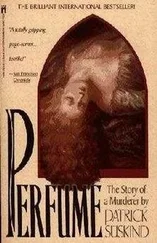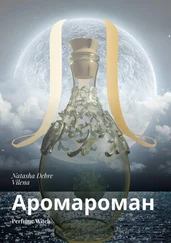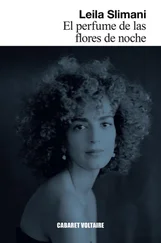By then, gray had overtaken one of every four hairs on his head, and some nights he would pluck those pale hairs as if they were petals, saying to Frol, “If I wasn't elderly when our clan decreed I was, I soon will be. Harsh labor pierces the rosy membrane of youth and lets the shriveling brine seep in.”
Nevertheless, the work-worn months held satisfactions. The novelty of one wife continued to fascinate Alobar. Frol remained as devoted as when he was her sovereign, and she showed signs of maturing into a woman as sexually adept as Alma and only slightly less intelligent than Wren. With her company he was content, and when she issued twins, one of each gender, that first November, a new dimension was added to his life. Back in his home city, his offspring had been raised communally in a nursery adjoining the harem. The nursery was a female province, as foreign to his bootsteps as the serpent-seared cliffs of the edge. Now he discovered children, and the discovery blew blasts of sugar into every chamber of his heart.
When Alobar had enough energy, he cataloged his experiences and observations and tried to profit from them, to what end he could not say. Because Christianity emphasized the value of the individual, in the Roman scheme every person had his or her place. In the frame of mind in which he'd been since first he was violated by the hair, this concept appealed to him, providing food for mental mastication.
The peasants were a dull lot, by and large, but they had exhibited extraordinary kindness in helping the strangers set up house-keeping in a flea-bitten cottage with a dirt floor. Their friendliness increased after first Frol (out of conviction) and then Alobar (as a strategic maneuver) agreed to be baptized in the name of their exclusive god. However, certain activities were conducted in the village from which Alobar and his family were barred. These activities seemed to be social in nature, generally merry, and coincided with seasonal observances.
The traditional winter festival, which among Alobar's folk as well as many other Europeans was celebrated during the twelve days that separated the end of the lunar year (353 days long) from the end of the longer solar year (365 days), and whose purpose it was to equalize the two different celestial years, had been appropriated by the Christians and transformed into a religious holiday called “Christmas.” As far as Alobar could determine, Christmas was the same winter festival of yore, except that the profound emotionalism annually precipitated by moon/sun influences, the priest here attributed to the natal anniversary of “Christ,” a Semitic man-god whose exact relationship to the One God, Alobar could never quite get straight.
On their first Christmas Day in Aelfric, Frol and Alobar were obliged to spend the entire morning in church, listening to sermons and hymns in a language they could barely understand. Later in the day, they tramped through the snow to the manor house, where the lord served up a mammoth meal for all his serfs. At dusk, Frol and Alobar returned to their cottage to sleep off the food and drink, but long after their candles had been extinguished, lights flickered in the homes of others, as well as in the community lodge, from which laughter and song poured most of the night. The songs that Alobar overheard were most unlike hymns, and the whoops and guffaws that mixed in the clear, frosty air were most unlike prayers, although for his part, Alobar deemed them every bit as godly. The revelry continued nightly until the sixth day of January, the termination of the twelve-day “lost” or supplementary month.
Since there were similar goings-on at the time of the old spring fertility festival — the priest called it “Easter" — and during the feast of the dead in late October—"All Saint's Day,” according to the Christians; since he and Frol, as newcomers, were never invited; and since the priest steered clear of the merrymaking while the shaman, in a horny mask, occasionally dropped by, Alobar was to conclude that for all their pious Christian convictions the peasants still clung to the pagan customs that were their archaic heritage.
His conclusion was correct, although a night was fast a-coming when he would wish he was mistaken.
His lips curled over the rim of a cider mug, Alobar sat before the hearth. Outdoors the snow was piled halfway to the Big Dipper, and the earth lay as passive as an eyeless potato. More snow was falling, and Alobar praised each and every flake. Onward, snow! The subdued landscape awaits your crystal victory! Although the peasant women busied themselves at the cookpot, the spinning wheel, and the loom, weather had curtailed their husbands' labors, and for this respite Alobar thanked the new god, the old gods, the morning star, and the snow itself, for the snow seemed energized and awake in a universe that slumbered like a cadaver.
In front of the crackling fire, Alobar dandled his babies on his knees and at last gave full attention to his lot. How he welcomed this opportunity for uninterrupted thought! Externally and internally, his life had changed dramatically since that silver hair had flagged him down, and though the next day was Christmas, it was not upon the pigs roasting in Lord Aelfric's ovens nor the epiphanies marinating in the prayer book of the priest that he dwelled, but upon his path from kingship to peasantry and upon what future twists that road might take. A life in progress. A thing to behold.
So lost in reverie was he that when there came a loud banging at the door, he let both his mug and his infants drop to the hearth. The mug rolled into the flames, but the twins, having slightly less rounded contours, stayed where they fell.
Frol unlatched the door, and out of the dark trooped a snow-dusted band of their neighbors, faces scarlet from cold and strong drink. The villagers embraced them both, not a little lasciviously, and placed wreaths of holly and cedar about their necks. They bade Alobar and Frol accompany them to the community lodge.
Frol was unnerved by the boisterousness of the peasants, normally so sober and staid, but Alobar whispered, “Let us join them. More than a year has passed. This is our second Christmas in Aelfric, and finally we've been judged trustworthy to participate in their seasonal fun. By the tone of it, we are about to be included in ceremonies more ancient, more unrestrained, and, I suspect, more heartfelt than any we will share on the morrow.”
The entrance to the hall was decorated to resemble the face of a beast, eyes bulging and burning (lanterns inside goat skins), teeth of thin wooden slats. They entered through the mouth of the creature, walking over blood-drenched hides that represented the great animal's tongue — and constituted, perhaps, the original red carpet. Inside, the low rafter beams were luxuriously festooned with coniferous boughs, holly, and running cedar, although damp logs smoldering in the fireplace had smoked up the place to the extent that details of the greenery were barely discernible. It didn't matter, for there could be no mistaking the kegs of cider that rose majestically in the smoke. Frol and Alobar let their cups be filled repeatedly, though in fact most of the liquid was speedily sloshed out by the jostling of fellow citizens as they coaxed the newcomers to join with them in bawdy songs. Frol strained to learn each lyrical indecency, but Alobar simply sang over and over again the only song he knew or had ever known, an epic about battles that were fought long, long ago, back before the morning star impregnated the She-Bear who gave birth to beets.
String and wind instruments were being played inexpertly. Soon, dancing commenced. Assisted by the chemistry of the cider, Alobar and Frol relaxed and slipped into the noisy spirit of things. Frol danced with every clodhopper who asked, while Alobar munched sausages and black puddings and played at dice and cards.
Читать дальше












